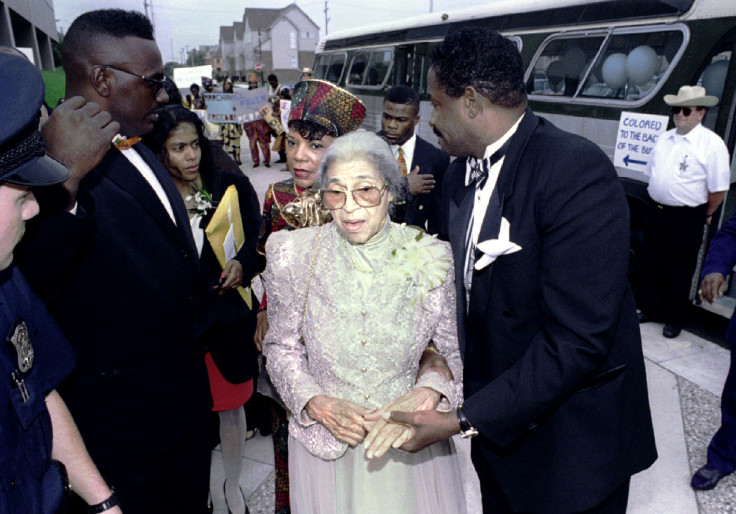Who Is Rosa Parks? Civil Rights Hero Honored On Dec. 1
KEY POINTS
- On Dec. 1 of 1955, Rosa Parks refused to give up her seat for a white man
- Rosa Parks' arrest started a civil right movement in the state of Montgomery
- The Montgomery bus boycott led the Supreme Court to rule bus segregation as unconstitutional
Behind the celebrated day of the first day of December is a woman who refused to give up her seat.
That woman was Rosa Parks. Working as an African American in the state of Montgomery, Parks became a civil hero this day in 1955, when she stood up to her people by ironically remaining seated in a Montgomery bus. Here is how she became the "mother of the civil rights movement."
After a long day at work at the Montgomery Fair department store, Rosa Parks boarded a bus and took her seat in the "colored" section located at the back of the vehicle. As the bus eventually began to fill, the driver asked four of the passengers from the "colored" section to give up their seats so a white man could sit. The three obeyed, but only Parks refused.
Based on state rules, bus drivers were allowed to assign seating for their passengers, but they weren't allowed to ask passengers to give up their seats. And so as Parks sat there, relentless to the aggressive persuasion of the bus driver, police came and arrested her -- unbeknown that this incident would spark a year-long boycott that would change the course of America's history.

Word about Rosa Parks' arrest spread quickly, and African American leaders, including E.D. Nixon and Martin Luther King Jr., organized the Montgomery Bus Boycott immediately -- beginning on the day of Rosa Parks' trial, which was on Dec. 5. The year-long boycott succeeded, devastating the transportation system in Montgomery, and led the Supreme Court to rule that bus segregation was unconstitutional.
The boycott ended Dec. 20, the day when the Court's written order of the ruling arrived in Montgomery. Since then, the brave Rosa Parks became known as "the mother of the civil rights movement."
In an autobiography Parks wrote, she said "People always say that I didn’t give up my seat because I was tired, but that isn’t true. I was not tired physically. … No, the only tired I was, was tired of giving in.”
Rosa Parks was an active member of the National Association for the Advancement of Colored People (NAACP), an organization her husband was also a part of. The two were a respected couple in the African American community in Montgomery, and worked closely with Edward Daniel (E.D.) Nixon for the advancement of African American rights across the state.
© Copyright IBTimes 2025. All rights reserved.





















